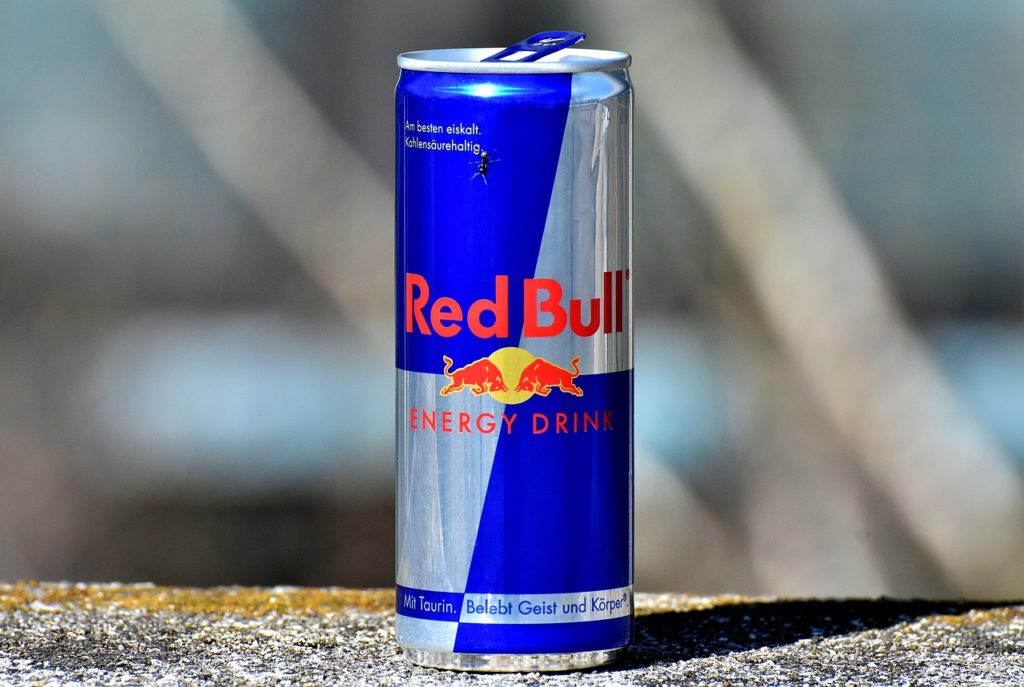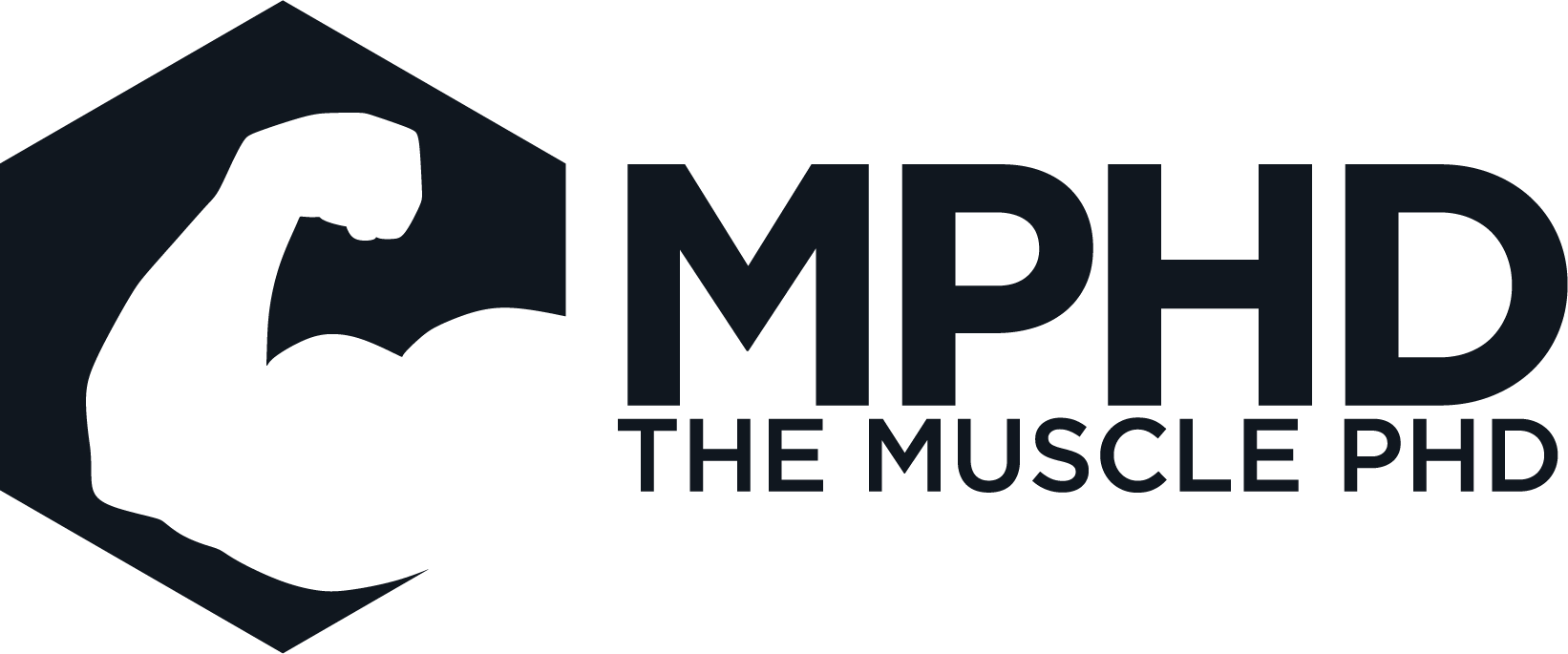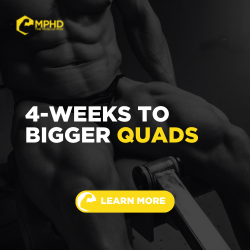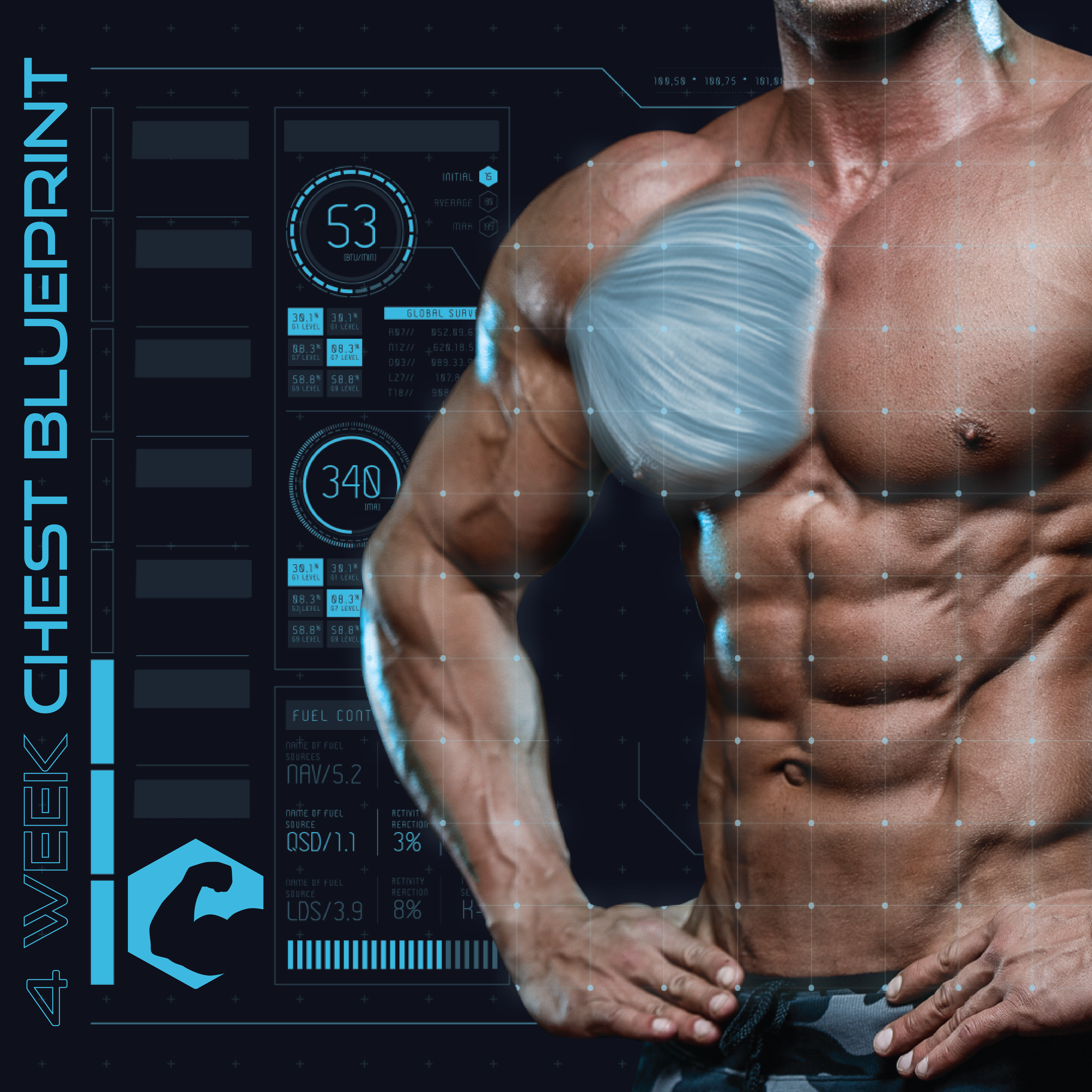Introduction
Ask any knowledgeable person in the fitness industry what the most important dietary supplement is and they’ll probably point to a multivitamin as their answer. Vitamins and minerals are certainly important for overall health, especially in restricted diets or diets that lack variety. The term we use for vitamins and minerals collectively is, “micronutrients,” as they are required in much smaller doses than macronutrients like carbs or proteins and they do not contain any calories.
Before we hop into the discussion, let’s first outline the fact that this information is focused on gains – not health, longevity, or any of that other stuff. The health effects of vitamins and minerals are pretty well-known, but the interest here is their impact on performance and/or gains. With that out of the way, let’s get started.
Vitamins
We’ll discuss vitamins first as they’re often mentioned before minerals as if they hold more importance. The most common vitamins used in athletics and bodybuilding are B-vitamins, vitamin C, vitamin D, and vitamin E. We’ll go over them separately to get a better idea of each.
B-Vitamins
 B-vitamins are probably the most commonly sought-after group of vitamins since they have a large involvement in metabolism – especially during endurance exercise where energy production goes into overdrive (16,30). The problem with B-vitamin supplementation is that you likely just don’t need it; any normal diet in most developed countries contains plenty of B-vitamins which renders it unnecessary to consume extra, even for athletes (30). Studies show that higher levels of B-vitamin ingestion don’t have any positive effects for athletic performance (30). One interesting caveat is that extremely high doses of B-vitamins may even promote relaxation – not exactly what most athletes or bodybuilders are looking for (3).
B-vitamins are probably the most commonly sought-after group of vitamins since they have a large involvement in metabolism – especially during endurance exercise where energy production goes into overdrive (16,30). The problem with B-vitamin supplementation is that you likely just don’t need it; any normal diet in most developed countries contains plenty of B-vitamins which renders it unnecessary to consume extra, even for athletes (30). Studies show that higher levels of B-vitamin ingestion don’t have any positive effects for athletic performance (30). One interesting caveat is that extremely high doses of B-vitamins may even promote relaxation – not exactly what most athletes or bodybuilders are looking for (3).
B-vitamins are almost always thrown into pre-workout supplements and energy drinks as many believe them to be an energy-boosting substance. However, taking amounts far above the RDI probably doesn’t add any extra benefit (30). Therefore, in lieu of supplementation, shoot for foods like pork, chicken, and many vegetables as they have high B-vitamin content. The typical athlete or bodybuilding diet, then, probably doesn’t need extra B-vitamin intake (16).
Vitamins C and E
We’ll discuss vitamin C and E together as they are both lumped into a group of substances known as “antioxidants.” It’s important to understand the role of antioxidants in the body so we must first investigate one of the byproducts of intense exercise: reactive oxygen species. Reactive oxygen species are more commonly known as, “free radicals,” and they readily bond to other microscopic substances within a cell. This process can cause damage to the cell through a process called, “oxidative stress.” Antioxidants are meant to combat this issue as they bond to these free radicals, thus avoiding damage to the cell. The problem with antioxidants and exercise, however, is that oxidative stress acts as a chemical signal for muscle repair and growth (24). If you’re taking antioxidants and reducing oxidative stress from exercise, you’re likely going to have a weaker signal for growth and less overall adaptation to exercise (15,18,24,25).
Antioxidants still play an important role in overall health, just make sure you’re not supplementing with too many additional antioxidants if you’re focused on maximizing muscle growth. As far as food sources go, vitamin C is found in citrus fruits like oranges and lemons while vitamin E is found in nuts and green, leafy vegetables like lettuce and spinach.
Vitamin D
 When it comes to supplementing with vitamins, vitamin D is probably your best bet for having an effect on performance or gains. Studies have shown that supplementing with vitamin D might increase natural testosterone levels, especially in vitamin D-deficient individuals or older populations (21,26). It looks like taking between 3000 and 5000 IU per day of vitamin D is an effective amount for potentially getting this benefit – especially if you don’t get enough vitamin D through diet or sun exposure. Obviously, having healthy testosterone levels is important for making gains as testosterone has a direct effect on protein synthesis and overall muscle strength and growth – not to mention subjective things like confidence, quality of life, etc.
When it comes to supplementing with vitamins, vitamin D is probably your best bet for having an effect on performance or gains. Studies have shown that supplementing with vitamin D might increase natural testosterone levels, especially in vitamin D-deficient individuals or older populations (21,26). It looks like taking between 3000 and 5000 IU per day of vitamin D is an effective amount for potentially getting this benefit – especially if you don’t get enough vitamin D through diet or sun exposure. Obviously, having healthy testosterone levels is important for making gains as testosterone has a direct effect on protein synthesis and overall muscle strength and growth – not to mention subjective things like confidence, quality of life, etc.
Researchers have also found that muscles have their own vitamin D receptors and that vitamin D itself may even play a critical role in protein synthesis and may also influence muscle strength (5,6,22). In addition, vitamin D is important for bone health as low vitamin D levels are associated with increased risks for bone injuries (22). Supplementing with vitamin D may be important to capitalize on all of the performance enhancing effects.
Vitamin D can be tough to get through a normal diet and sun exposure, especially during the winter months in colder climates. Eggs and fish are both good sources of vitamin D and vitamin D is often added to things like orange juice and dairy products. Therefore, aim to include some of these sources in your diet in addition to a vitamin D supplement up to 5000 IU. Vitamin D3 is likely your best choice when concerning vitamin D products.
Vitamin Conclusion
Overall, if you’re not in a period of dietary restriction and aren’t a picky eater, taking a multivitamin is likely not necessary (27,28,29). The only vitamin that appears to have a potential positive effect on performance is vitamin D, which you can easily find isolated at sports nutrition stores or even grocery stores. Just don’t expect massive gains from vitamin D supplementation – if you were vitamin D-deficient before supplementation, you might notice some effects. However, for the majority of bodybuilders, vitamin D would likely support training and gains rather than boost them.
On the other hand, taking a multivitamin may be warranted during cuts, especially extreme cutting like shredding down for a show or weight class-restricted athletic event. When you restrict calories and overall food intake, you’re probably more likely to toe the line of various vitamin deficiencies. Therefore, multivitamins can be used as a tool for these types of scenarios, however, you should definitely focus on optimizing your diet first.
Minerals
When it comes to the diet of an athlete or bodybuilder, minerals are probably much more important than vitamins. Why? Because we lose many minerals through sweat (10,14) and if you’re training hard, you’re going to be sweating a lot. Like we did with vitamins, we’ll go over some extra special minerals that you’ll want to focus on as an athlete or bodybuilder.
Sodium
 Sodium is probably the most important mineral when it comes to performance. Sodium plays a key role in muscle contractions and is also highly responsible for maintaining the fluid balance within a cell. Sodium gets quite a lot of hate in popular media, but the problem is that the established needs and requirements for sodium are directed to sedentary people – athletes have much, much higher sodium needs (10). How much more? Let’s look at it this way:
Sodium is probably the most important mineral when it comes to performance. Sodium plays a key role in muscle contractions and is also highly responsible for maintaining the fluid balance within a cell. Sodium gets quite a lot of hate in popular media, but the problem is that the established needs and requirements for sodium are directed to sedentary people – athletes have much, much higher sodium needs (10). How much more? Let’s look at it this way:
Let’s say you’re an average sweater – this means you produce about 1.5-liters of sweat per hour of intense training (10). Let’s also assume you’re a hardcore bodybuilder, so you probably get in 2-hours of intense training on workout days and, therefore, lose a total of 3-liters of sweat every training session. The main mineral we lose in sweat is sodium and we lose about 1.15-grams of sodium per every liter of sweat (10). This means that a hardcore 2-hour workout will result in about 3.45-grams of sodium lost. How can you replace that sodium? Salt! Salt consists of about 40% sodium (10), so this means that you would need over 8-grams of salt to replace the sodium you lost in your sweat.
Now, the daily salt recommendation for sedentary people is about 2.3-grams of salt per day. If you’re an athlete or bodybuilder, ignore that completely. Com-plete-ly. Liberally salt your food, eat salty snacks like peanuts or beef jerky, and don’t be afraid to cook meats in high-sodium marinades or sauces. Salt is incredibly important to maintaining both strength and endurance performance so ensure you’re taking in higher levels of salt as an athlete. Obviously, if you’re cutting water for a show or weight class-restricted event, you’re going to want to modify your sodium intake as well. However, that topic is a little out of the scope of this article, so we’ll leave that for another time.
As long as you’re maintaining proper intake of all of the electrolytes and working up a consistent sweat, blood pressure issues are unlikely to arise – especially if you are in a healthy body composition range. If blood pressure issues run in your family or you have a little extra weight on your frame, it might be prudent to routinely check your blood pressure when adding salt to your diet. Health should probably come before gains so make sure you keep this section in context when planning your (or a client’s) diet.
Magnesium
Magnesium is another highly important mineral for performance as it is involved in over 300 enzymatic reactions in the body – many of which have a direct impact on muscle contractions and insulin sensitivity (12,13,23). It can also be tough to consume higher levels of magnesium through a normal diet, so supplementing with magnesium might be a good idea for athletes or bodybuilders. Insulin sensitivity is critical for post-workout recovery, muscle growth, body composition, and overall performance for athletes, so having a higher intake of magnesium is paramount for improving performance. Magnesium might also help lower or control cortisol levels which can have a huge impact on muscle growth as cortisol can have a negative effect on both muscle growth and body composition (1).
300-500mg per day of magnesium glycinate appears to be your best bet, some forms of magnesium may cause tummy tickles, but glycinate seems to have fewer side effects. Glycinate can be a little tougher to find than more common forms, so you’ll likely have to head to a sports nutrition shop rather than your local grocery store.
Calcium
 Calcium is incredibly important for muscle contractions, but calcium availability doesn’t seem to be an issue because we store about 99% of our calcium in our bones with the other 1% being in our muscles. So, if our muscles need more calcium, they can just get it from our bones (31). If you don’t see a red flag here then you might want to reread that. Getting proper calcium intake is incredibly important for the athlete or bodybuilder as sweat and exercise can deplete bone calcium levels if they’re not readily replaced (8). This depletion, combined with poor nutrition, can eventually lead to osteoporosis (8) which can make strength and size gains essentially impossible because you’ll be in the hospital with broken bones all of the time. An exaggeration, of course, but healthy bones are happy bones.
Calcium is incredibly important for muscle contractions, but calcium availability doesn’t seem to be an issue because we store about 99% of our calcium in our bones with the other 1% being in our muscles. So, if our muscles need more calcium, they can just get it from our bones (31). If you don’t see a red flag here then you might want to reread that. Getting proper calcium intake is incredibly important for the athlete or bodybuilder as sweat and exercise can deplete bone calcium levels if they’re not readily replaced (8). This depletion, combined with poor nutrition, can eventually lead to osteoporosis (8) which can make strength and size gains essentially impossible because you’ll be in the hospital with broken bones all of the time. An exaggeration, of course, but healthy bones are happy bones.
Make sure to take in plenty of dairy through milk, cheese, and yogurt. If you’re lactose intolerant, some leafy green veggies have a decent amount of calcium, but you’ll probably want to supplement with calcium just to be safe (20). Calcium supplements are best taken with vitamin D as vitamin D may increase overall calcium absorption in the bone (22). Calcium and vitamin D are often lumped together in supplements, anyways, so that could be a great way to save money and ensure proper intake of both of these micronutrients.
Iron
Iron deficiency is more common in female athletes than male athletes, mostly due to the female menstrual cycle. Iron is an important component of the oxygen-carrying capacity of blood – having low iron levels can greatly reduce how much oxygen your blood can carry and deliver to working muscles. Supplementing with iron has been shown to improve endurance performance in women who were previously iron-deficient, so as a female it may be a good idea to check out an iron supplement (4,9). In addition, proper iron intake would also likely assist in training recovery from the increase in oxygen delivery
Red meat contains high levels of iron so don’t be afraid to add some red meat into your diet to help maintain or elevate iron levels. Females are likely to benefit the most from iron supplementation, but if your diet is low in red meat, then you might want to consider an iron supplement regardless of your gender.
Zinc
Zinc is the last mineral we’ll touch on as it appears to have some interesting effects on performance. Studies show that zinc supplementation may increase testosterone levels, especially in older individuals (1). However, it may not help too much as a handful of studies on the subject have been performed by the inventors of the ZMA formulation, including Victor Conte of BALCO fame, (2) and studies in younger individuals seem to show no benefit (19). So, it’s tough to say how effective zinc is for supporting testosterone production.
Regardless, taking zinc with vitamin D might be a potential strategy for bodybuilders interested in boosting natural testosterone levels, especially if a given lifter is deficient in either micronutrient or has naturally low testosterone levels. Zinc can also help boost immune function (11) which can have a direct impact on gains – you can’t make progress if your body is constantly battling bugs and colds. Zinc can also be lost through sweat (7) so it’s probably a good idea to include zinc-rich foods in your diet. Meats, eggs, and dairy are all great sources of zinc – good news for the typical bodybuilder’s diet.
Mineral Conclusion
Overall, taking a multimineral might be a good idea for the athlete or bodybuilder. Minerals are a little harder to come by in food and we also lose many through sweat which makes extra supplementation almost necessary to maintain proper levels. In addition, there’s several more minerals that may have small impacts on some aspect of bodybuilding, and a multimineral supplement would likely cover these.
Also, remember to liberally salt your food to combat the sodium lost through heavy sweating. You probably won’t notice an immediate performance boost or physique change from supplementing with minerals, but overtime your adaptations to exercise may be better and/or more consistent and your overall health/vitality will likely improve. Remember, it’s more important to fuel yourself for long term gains, so do your best to achieve a proper diet rich in minerals.
Easter Eggs
At the time of publication, reference # 17 was no longer available as an abstract or full text. If another version surfaces, we’ll sure to update this link.
References
- Antonio, J., & Stout, J. R. (2002). Supplements for strength-power athletes. Human Kinetics 1.
- Brilla, L. R., & Conte, V. (2000). Effects of a Novel Zinc-Magnesium Formulation on Hormones and Strength. Journal of Exercise Physiology Online, 3(4).
- Bonke, D. (1986). Influence of vitamin B1, B6, and B12 on the control of fine motoric movements. In Nutrition and Neurobiology (Vol. 38, pp. 104-109). Karger Publishers.
- Brownlie IV, T., Utermohlen, V., Hinton, P. S., Giordano, C., & Haas, J. D. (2002). Marginal iron deficiency without anemia impairs aerobic adaptation among previously untrained women. The American Journal of Clinical Nutrition, 75(4), 734-742.
- Cannell, J. J., Hollis, B. W., Sorenson, M. B., Taft, T. N., & Anderson, J. J. (2009). Athletic performance and vitamin D. Medicine & Science in Sports & Exercise, 41(5), 1102-1110.
- Ceglia, L., & Harris, S. S. (2013). Vitamin D and its role in skeletal muscle. Calcified Tissue International, 92(2), 151-162.
- Córdova, A., & Navas, F. J. (1998). Effect of training on zinc metabolism: changes in serum and sweat zinc concentrations in sportsmen. Annals of Nutrition and Metabolism, 42(5), 274-282.
- Dressendorfer, R. H., Petersen, S. R., Lovshin, S. E. M., & Keen, C. L. (2002). Mineral metabolism in male cyclists during high-intensity endurance training. International Journal of Sport Nutrition and Exercise Metabolism, 12(1), 63-72.
- Hinton, P. S., Giordano, C., Brownlie, T., & Haas, J. D. (2000). Iron supplementation improves endurance after training in iron-depleted, nonanemic women. Journal of Applied Physiology, 88(3), 1103-1111.
- Kenney, W. L. (2004). Dietary water and sodium requirements for active adults. Sports Science Exchange, 17, 92.
- Koehler, K., Parr, M. K., Geyer, H., Mester, J., & Schänzer, W. (2009). Serum testosterone and urinary excretion of steroid hormone metabolites after administration of a high-dose zinc supplement. European Journal of Clinical Nutrition, 63(1), 65.
- Lukaski, H. C. (2001). Magnesium, zinc, and chromium nutrition and athletic performance. Canadian Journal of Applied Physiology, 26(S1), S13-S22.
- Lukaski, H. C. (2000). Magnesium, zinc, and chromium nutriture and physical activity–. The American Journal of Clinical Nutrition, 72(2), 585S-593S.
- Lukaski, H. C. (1995). Micronutrients (magnesium, zinc, and copper): are mineral supplements needed for athletes? International Journal of Sport Nutrition, 5(s1), S74-S83.
- Makanae, Y., Kawada, S., Sasaki, K., Nakazato, K., & Ishii, N. (2013). Vitamin C administration attenuates overload‐induced skeletal muscle hypertrophy in rats. Acta Physiologica, 208(1), 57-65.
- Maughan, R. J. (1999). Role of micronutrients in sport and physical activity. British medical bulletin, 55(3), 683-690.
- Maughan, R. J., Shirreffs, S. M., & Baxter-Jones, A. D. G. (2000). Nutrition and the young athlete. Medicina Sportiva, 4(SPI), E51-58.
- Michailidis, Y., et. al. (2013). Thiol-based antioxidant supplementation alters human skeletal muscle signaling and attenuates its inflammatory response and recovery after intense eccentric exercise. The American Journal of Clinical Nutrition, 98(1), 233-245.
- Moëzzi, N., Peeri, M., & Matin, H. (2013). Effects of zinc, magnesium and vitamin B6 supplementation on hormones and performance in weightlifters. Annals of Biological research, 4, 163-168.
- NIH Consensus Development Panel on Osteoporosis Prevention, Diagnosis, and Therapy (2001). Osteoporosis Prevention, Diagnosis, and Therapy. JAMA, v. 285, p. 785-95.
- Nimptsch, K., Platz, E. A., Willett, W. C., & Giovannucci, E. (2012). Association between plasma 25‐OH vitamin D and testosterone levels in men. Clinical Endocrinology, 77(1), 106-112.
- Ogan, D., & Pritchett, K. (2013). Vitamin D and the athlete: risks, recommendations, and benefits. Nutrients, 5(6), 1856-1868.
- Paolisso, G., & Barbagallo, M. (1997). Hypertension, diabetes mellitus, and insulin resistance: the role of intracellular magnesium. American journal of hypertension, 10(3), 346-355.
- Paulsen, G., et. al. (2014a). Vitamin C and E supplementation alters protein signalling after a strength training session, but not muscle growth during 10 weeks of training. The Journal of Physiology, 592(24), 5391-5408.
- Paulsen, G., et. al. (2014b). Vitamin C and E supplementation hampers cellular adaptation to endurance training in humans: a double‐blind, randomised, controlled trial. The Journal of Physiology, 592(8), 1887-1901.
- Pilz, S., et. al. (2011). Effect of vitamin D supplementation on testosterone levels in men. Hormone and Metabolic Research, 43(3), 223.
- Singh, A., Moses, F. M., & Deuster, P. A. (1992). Chronic multivitamin-mineral supplementation does not enhance physical performance. Medicine and Science in Sports and Exercise, 24(6), 726-732.
- Telford, R. D., Catchpole, E. A., Deakin, V., Hahn, A. G., & Plank, A. W. (1992). The effect of 7 to 8 months of vitamin/mineral supplementation on athletic performance. International Journal of Sport Nutrition, 2(2), 135-153.
- Weight, L. M., Myburgh, K. H., & Noakes, T. D. (1988). Vitamin and mineral supplementation: effect on the running performance of trained athletes. The American Journal of Clinical Nutrition, 47(2), 192-195.
- Williams, M. H. (2004). Dietary supplements and sports performance: introduction and vitamins. Journal of the International Society of Sports Nutrition, 1(2), 1.
- Williams, M. H. (2005). Dietary supplements and sports performance: minerals. Journal of the International Society of Sports Nutrition, 2(1), 43.
- Ziegler, P., Sharp, R., Hughes, V., Evans, W., & San Khoo, C. (2002). Nutritional status of teenage female competitive figure skaters. Journal of the American Dietetic Association, 102(3), 374-379.
From being a mediocre athlete, to professional powerlifter and strength coach, and now to researcher and writer, Charlie combines education and experience in the effort to help Bridge the Gap Between Science and Application. Charlie performs double duty by being the Content Manager for The Muscle PhD as well as the Director of Human Performance at the Applied Science and Performance Institute in Tampa, FL. To appease the nerds, Charlie is a PhD candidate in Human Performance with a master’s degree in Kinesiology and a bachelor’s degree in Exercise Science. For more alphabet soup, Charlie is also a Certified Strength and Conditioning Specialist (CSCS), an ACSM-certified Exercise Physiologist (ACSM-EP), and a USA Weightlifting-certified performance coach (USAW).




